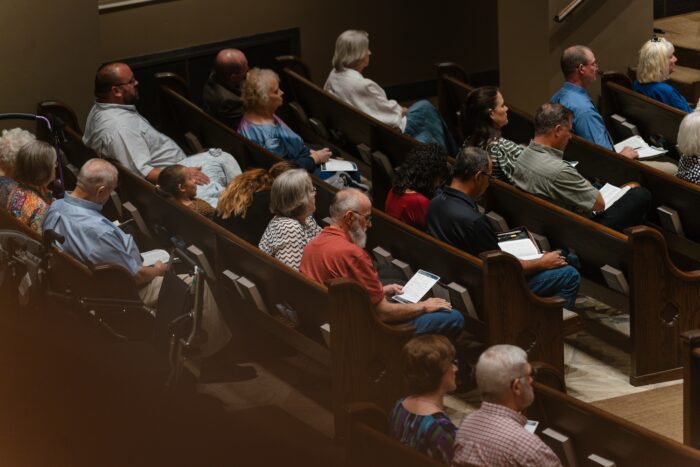Frequent inquiries regarding the practice of evangelism raise a significant question: “Whose responsibility is it?” I address this question at almost every evangelism training I give to a local church. Some believe that evangelism is a gift bestowed upon a select few. Individuals who hold to the view that “evangelism is a spiritual gift” argue, “Those who have the gift of evangelism are more likely to participate in evangelism and be successful at it because the gift makes them bolder, quicker at handling objections, and fearless in their approach.” In contrast, a second group believes that “evangelism is a discipline” and sees it as the responsibility of every believer to share the Gospel of Jesus Christ with relatives, friends, and strangers.
Evangelism as a Spiritual Gift
The former position fails to align with the teaching of evangelism in the New Testament. Paul speaks about spiritual gifts, the special abilities given by the Holy Spirit to believers for the church’s edification. However, among the spiritual gifting passages in 1 Corinthians 12, 13, and 14, Romans 12, and 1 Peter 4, no “gift of evangelism” is mentioned. Yet, most often, the question arises about Ephesians 4:8: “He gave gifts to people.” In the passage, Paul identifies the “gift of grace” of the evangelist, not evangelism.
Furthermore, the following verses explain the nature of the gifting: “He gave some as evangelists…for the equipping of the saints for the work of ministry, for the building up of the body of Christ.” From the passage, we observe at least two things related to evangelism. First, evangelists have God’s grace (gift) to “equip for the work of ministry.” Second, since evangelists have an equipping role, namely in evangelism, others—the saints—are expected to participate in the church’s evangelistic ministry. Thus, Ephesians 4 nor the other gift passages support the “gift of evangelism.”
The Role of Every Believer
Acts 8 observes the larger body of believers participating in evangelism. “Now Saul approved of putting Stephen to death. And on that day, a great persecution began against the church in Jerusalem, and they were all scattered throughout the regions of Judea and Samaria, except for the apostles.” The result of the believers’ scattering was recorded this way: “Therefore, those who had been scattered went through places preaching the word.” Thus, the “scattered ones” sharing the Gospel were not the apostles but others of the faith.
Moreover, in 1 Peter 3:15, believers are instructed to always be prepared to give an answer to everyone who asks for the reason for the hope that they have. This readiness to share one’s faith underscores the idea that evangelism, in its most basic form, is a duty for all Christians, not just those who believe they have the spiritual gift of evangelism.
The Biblical Mandate for Evangelism
To determine whether evangelism is a responsibility of all or a specific gift for a few, we must examine the Bible’s teachings regarding the Great Commission. One of the most cited passages is Matthew 28:19-20, where Jesus commands His followers, “Go, therefore, and make disciples of all the nations, baptizing them in the name of the Father and the Son and the Holy Spirit, teaching them to follow all that I commanded you…” The commission given immediately to the eleven appears inclusive, addressing all disciples, suggesting that evangelism is a collective responsibility of the entire Christian community. The previous statement supports the following conclusions. If only the eleven were expected to evangelize, they could only evangelize others with the gift for the Great Commission to be fulfilled. Evangelizing those without the gift could create disciples who do not evangelize because they do not possess it.
“Equipping the Call” for Church Ministry
Despite the clear biblical mandate, examples of the church’s involvement in evangelism, and the New Testament’s teaching regarding spiritual gifts, many believers feel inadequate and fearful when practicing evangelism. The reluctance of some creates an opportunity for others in the church to encourage and equip them. Thus, the church needs to identify grace-gifted evangelists to assist in encouraging, equipping, and engaging.
The evangelists must equip the church by leading as examples in evangelism and providing training. From my experience, effective evangelism training addresses the what, why, and how of evangelism, at the very least. Other areas of responsibility include aiding the church through small group role-playing and mentorship, helping to demystify evangelism, and building confidence. In the area of encouragement, evangelistic efforts such as prayer, spiritual conversations, Gospel conversations, and conversions should be frequently celebrated, demonstrating God’s power at work through those who participate. Lastly, I suggest helping the church embrace the nature of evangelism, which involves engaging unbelievers with a verbal proclamation of the Gospel.
A healthy evangelistic church acknowledges the specific gift of the evangelist in equipping, leading, and inspiring the church in its mission. By embracing both perspectives, the gift of the evangelist and the responsibility of the evangelism of every believer, the church can effectively fulfill its evangelistic calling, ensuring that the Gospel reaches all corners of the world through the combined efforts of the church. The early church provides a model of how both the gifting of the few and the calling of everyone can work together. In Acts, we see a community deeply committed to teaching, fellowship, breaking bread, prayer, and sharing the Gospel. While the apostles played a crucial role in preaching and teaching, every member contributed to the witness of the Christian faith.








